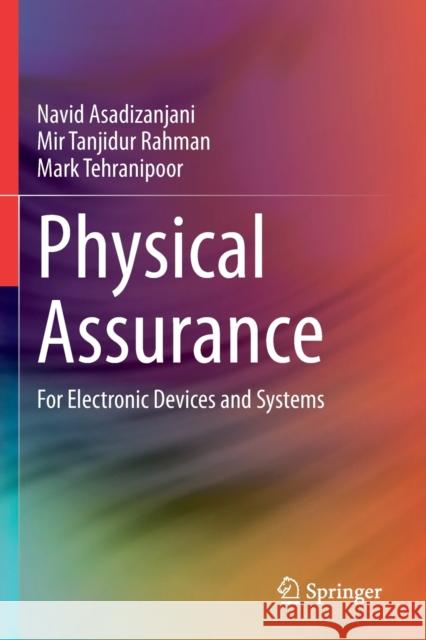Physical Assurance: For Electronic Devices and Systems » książka
topmenu
Physical Assurance: For Electronic Devices and Systems
ISBN-13: 9783030626112 / Angielski / Miękka / 2022 / 208 str.
Physical Assurance: For Electronic Devices and Systems
ISBN-13: 9783030626112 / Angielski / Miękka / 2022 / 208 str.
cena 322,77
(netto: 307,40 VAT: 5%)
Najniższa cena z 30 dni: 308,41
(netto: 307,40 VAT: 5%)
Najniższa cena z 30 dni: 308,41
Termin realizacji zamówienia:
ok. 16-18 dni roboczych.
ok. 16-18 dni roboczych.
Darmowa dostawa!
Kategorie:
Kategorie BISAC:
Wydawca:
Springer
Język:
Angielski
ISBN-13:
9783030626112
Rok wydania:
2022
Ilość stron:
208
Waga:
0.30 kg
Wymiary:
23.39 x 15.6 x 1.12
Oprawa:
Miękka
Wolumenów:
01
Dodatkowe informacje:
Wydanie ilustrowane











